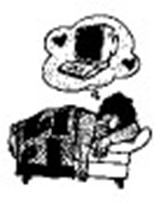题目内容
“You speak very good English”
The other day I heard an American say to a Chinese student of English. “You 41 very good English.” But the student answered, “ No, my English is very poor.” The foreigner was quite
42 at the answer. Thinking he had not made himself 43 or the student had not heard him clearly, he said, “Yes, indeed, you speak it very well.” But the Chinese student still 44 saying “No”. 45 the foreigner gave up and didn’t know what to say.
What’s wrong with the student’s answer? It is because he didn’t accept a compliment as the American people 46 . He should have said “Thank you” instead of “No”. He actually understood what the American had said. But he thought he should be modest. If someone says to a woman, “ You look 47 beautiful with the new clothes 48 .” she should be very happy and answer, “Thank you.” In our country we think 49 modest is a virtue and showing off is a bad behavior. But in the West, if you are modest and say, “ No, 50 I can’t do it well,” then the others will take it for granted (理所当然)that you 51 can not do it. If you often say,“No”, you will certainly be looked down upon by 52 . When 53 for a job, if one says something like “Yes, I can certainly do it” instead of “ Let me have a try on the job”, he or she can expect to get it. So in the West, one should always be confident. 54 self-confidence, he can’t go anywhere. Confidence is of great 55 to one in a country where competition is quite keen.(激烈)
The other day I heard an American say to a Chinese student of English. “You 41 very good English.” But the student answered, “ No, my English is very poor.” The foreigner was quite
42 at the answer. Thinking he had not made himself 43 or the student had not heard him clearly, he said, “Yes, indeed, you speak it very well.” But the Chinese student still 44 saying “No”. 45 the foreigner gave up and didn’t know what to say.
What’s wrong with the student’s answer? It is because he didn’t accept a compliment as the American people 46 . He should have said “Thank you” instead of “No”. He actually understood what the American had said. But he thought he should be modest. If someone says to a woman, “ You look 47 beautiful with the new clothes 48 .” she should be very happy and answer, “Thank you.” In our country we think 49 modest is a virtue and showing off is a bad behavior. But in the West, if you are modest and say, “ No, 50 I can’t do it well,” then the others will take it for granted (理所当然)that you 51 can not do it. If you often say,“No”, you will certainly be looked down upon by 52 . When 53 for a job, if one says something like “Yes, I can certainly do it” instead of “ Let me have a try on the job”, he or she can expect to get it. So in the West, one should always be confident. 54 self-confidence, he can’t go anywhere. Confidence is of great 55 to one in a country where competition is quite keen.(激烈)
| 小题1: |
|
| 小题2: |
|
| 小题3: |
|
| 小题4: |
|
| 小题5: |
|
| 小题6: |
|
| 小题7: |
|
| 小题8: |
|
| 小题9: |
|
| 小题10: |
|
| 小题11: |
|
| 小题12: |
|
| 小题13: |
|
| 小题14: |
|
| 小题15: |
|
小题1:C
小题2:B
小题3:A
小题4:D
小题5:C
小题6:D
小题7:C
小题8:B
小题9:A
小题10:A
小题11:B
小题12:D
小题13:A
小题14:B
小题15:D
短文大意: 这篇短文主要谈到了英语交际中的谦虚问题,在西方交际中对于别人的夸奖,赞美等恭维一般是欣然结构,并表示感谢,而不是像中国人一样谦虚几句。由此也让我们懂得,在西方社会自信是多么的重要。
小题1:动词辨析。tell告诉,讲述,强调一个人说;say 说,强调说的内容;talk 不及物动词,谈话,多和介词搭配使用;speak演讲,发言,说某种语言。联系下文,可知此处指的是你的英语说得不错。故选C。
小题2:联系后一句描述,可知这个外国人很惊讶,故选B,惊讶的,感到出人意料的。B
小题3:结合语境可知此处指的是这个男孩认为对方没有明白自己的意思。过去分词作宾语补足语表示被动的动作,结合语境可知选A。
小题4:联系上下文可知此处指的是,这个中国学生仍旧坚持说……。结合语境可知本句描述的是过去发生的动作,故用过去时态,选D,坚持,继续。
小题5:短语辨析。A. 首先,最初; B. 顺便说说;C.终于,最后;D. 首先。联系前文,可知这个外国人最后放弃了。故选C。
小题6:结合语境可知此处指的是他没有像美国人那样接受恭维。结合语境可知从句中描述的是客观性动作,故用一般现在时态。本句主语the American people 表示复数含义,故谓语动词用原形。选D。
小题7:词义辨析。such是形容词,修饰名词,意思是如此的这样的;so是副词,修饰形容词,副词,意思是如此这样。连词下文beautiful ,可知选C,副词修饰形容词。
小题8:介词辨析。A.为了,对于;B. 在上面;C.在里面;D.进入。本句中介词on用作形容词,表示衣服穿在身上的意思,故选B。
小题9:联系上下文可知此处指的是,我们认为诚实是一种美德。结合语境可知本句从句中是动名词做主语,have的基本含义是有,故选A。
小题10:短语辨析。A.我害怕;B. 我不确定;C.我不介意;D.我不知道。结合语境可知此处指的是,恐怕我不能做好。故选A。
小题11:联系前文描述,可知此处指的是,他们认为你真的不能做好。故选B,真实地。
小题12:联系上下文,可知此处指的是,你肯定会被其他人看不起,故选D,其他人。
小题13:结合语境可知此处指的是当找工作时,现在分词作状语表示正在进行的伴随性动作,故选A,要求。
小题14:联系下文,可知此处指的是没有自信,寸步难行。故选B,没有。
小题15:联系前文描述,可知自信对于一个来说具有很大的重要性。本句中of是介词,后面接名词作宾语,故选D,重要性。
小题1:动词辨析。tell告诉,讲述,强调一个人说;say 说,强调说的内容;talk 不及物动词,谈话,多和介词搭配使用;speak演讲,发言,说某种语言。联系下文,可知此处指的是你的英语说得不错。故选C。
小题2:联系后一句描述,可知这个外国人很惊讶,故选B,惊讶的,感到出人意料的。B
小题3:结合语境可知此处指的是这个男孩认为对方没有明白自己的意思。过去分词作宾语补足语表示被动的动作,结合语境可知选A。
小题4:联系上下文可知此处指的是,这个中国学生仍旧坚持说……。结合语境可知本句描述的是过去发生的动作,故用过去时态,选D,坚持,继续。
小题5:短语辨析。A. 首先,最初; B. 顺便说说;C.终于,最后;D. 首先。联系前文,可知这个外国人最后放弃了。故选C。
小题6:结合语境可知此处指的是他没有像美国人那样接受恭维。结合语境可知从句中描述的是客观性动作,故用一般现在时态。本句主语the American people 表示复数含义,故谓语动词用原形。选D。
小题7:词义辨析。such是形容词,修饰名词,意思是如此的这样的;so是副词,修饰形容词,副词,意思是如此这样。连词下文beautiful ,可知选C,副词修饰形容词。
小题8:介词辨析。A.为了,对于;B. 在上面;C.在里面;D.进入。本句中介词on用作形容词,表示衣服穿在身上的意思,故选B。
小题9:联系上下文可知此处指的是,我们认为诚实是一种美德。结合语境可知本句从句中是动名词做主语,have的基本含义是有,故选A。
小题10:短语辨析。A.我害怕;B. 我不确定;C.我不介意;D.我不知道。结合语境可知此处指的是,恐怕我不能做好。故选A。
小题11:联系前文描述,可知此处指的是,他们认为你真的不能做好。故选B,真实地。
小题12:联系上下文,可知此处指的是,你肯定会被其他人看不起,故选D,其他人。
小题13:结合语境可知此处指的是当找工作时,现在分词作状语表示正在进行的伴随性动作,故选A,要求。
小题14:联系下文,可知此处指的是没有自信,寸步难行。故选B,没有。
小题15:联系前文描述,可知自信对于一个来说具有很大的重要性。本句中of是介词,后面接名词作宾语,故选D,重要性。

练习册系列答案
 心算口算巧算一课一练系列答案
心算口算巧算一课一练系列答案
相关题目




